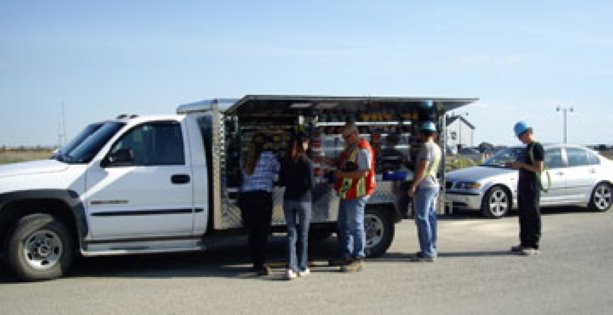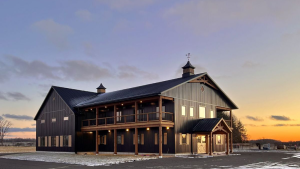Richard Frechette is one of the go-to guys in the Canadian coffee truck industry. His main business, Coffeetrucks.ca Inc., sells and repairs coffee trucks in Calgary and Montreal, but he’s worked his own coffee route, bought and sold coffee routes and advises entrepreneurs who are thinking of entering the business.
Richard Frechette is one of the go-to guys in the Canadian coffee truck industry. His main business, Coffeetrucks.ca Inc., sells and repairs coffee trucks in Calgary and Montreal, but he’s worked his own coffee route, bought and sold coffee routes and advises entrepreneurs thinking of entering the business.
Construction clients form a significant portion of some routes, says Frechette. During the Calgary construction boom of the 1980s, additional construction sites expanded his route in the north part of the city to the point where he was able to split the route into three profitable routes.
“That’s the best way to build a new route,” says Frechette. “Expanding and splitting an existing route.”
Frechette stopped driving coffee trucks 20 years ago when his sideline business of repairing, buying and selling coffee trucks became more profitable.
He has sound advice for would-be coffee route operators.
“A lot of people think they can just buy a truck, drive down the street and begin honking like an ice cream truck in front of a construction site for customers,” he says. “They have no idea that there’s a lot of loyalty in the business and that you can’t just drive onto a construction site whenever you choose to.”
Frechette arranges for potential buyers to drive two or three routes for a day, just to see if they enjoy the business. For those starting a new route, he advises caution.
“An old route is more predictable than a new one,” he says. “People on established routes have already budgeted the $50 they might spend on the coffee truck every two weeks. If you start a brand new route, you might get some initial interest in the first couple of weeks, but that may change as people begin to realize they’re spending money they didn’t spend before.”
Business differs in the east and west, he says. The east is largely well served by operators, while many western cities are underserved. “Cities like Saskatoon are booming towns with a lot of construction, but they don’t have lunch trucks,” he says. “In some smaller municipalities, the person driving the lunch truck has died or retired and there’s nobody there to replace them.”
Eastern operators tend to have construction-only routes while western routes are generally more diverse. Frechette recalls a coffee route operator in southern Ontario who had a mining construction company as a major customer.
“When the company moved to Prince George, B.C., the truck operator moved there with them, and worked there until the owner retired,” he says.
Although most customers appreciate regular service, construction customers are particularly sensitive to scheduling.
“The big construction companies know the value of a good lunch truck that arrives on time,” he says. “If they’re late, you can’t afford to have 15 or 20 guys waiting for the truck to arrive. Without a lunch truck, workers would be going off-site and having a beer with their lunch.”
Construction companies prefer coffee service at 9:30 a.m. and noon, and the biggest companies can demand priority service.











Recent Comments
comments for this post are closed